Adsorption And Biological Filtration In Wastewater Treatment
ADSORPTION AND BIOLOGICAL FILTRATION IN WASTEWATER TREATMENT
Source : https://www.eolss.net/
Authors : . Kandasamy, S. Vigneswaran, T. T. L. Hoang
Over the last few decades adsorption has gained paramount importance in industry and environmental protection. Adsorption processes are widely applied for separation and purification because of the high reliability, energy efficiency, design flexibility, technological maturity and the ability to regenerate the exhausted adsorbent. One method of important extending the adsorption treatment processes is biofiltration. The biological filter relies on the activities of the community of micro-organisms that become attached onto the filter media. Microbes oxidize organic matters in water to produce energy and therefore available nutrients sources in feed water are essential for their development. Biofiltration can effectively remove organic matter that is not able to be removed from water and biologically treated sewage effluent in conventional sewage treatment. The microbial attachment process, the factors that influence biological filtration, the kinetics of microbial growth and details of the microbial community in the biofilter are discussed in detail. There are several types of biofilters including submerged filters, trickling filter, bed filter, fluidised bed. The different biofilters are described and a comparison between them is provided. The application of biofilters for treating various types of wastewater effluent is detailed.
Only logged in customers who have purchased this product may leave a review.


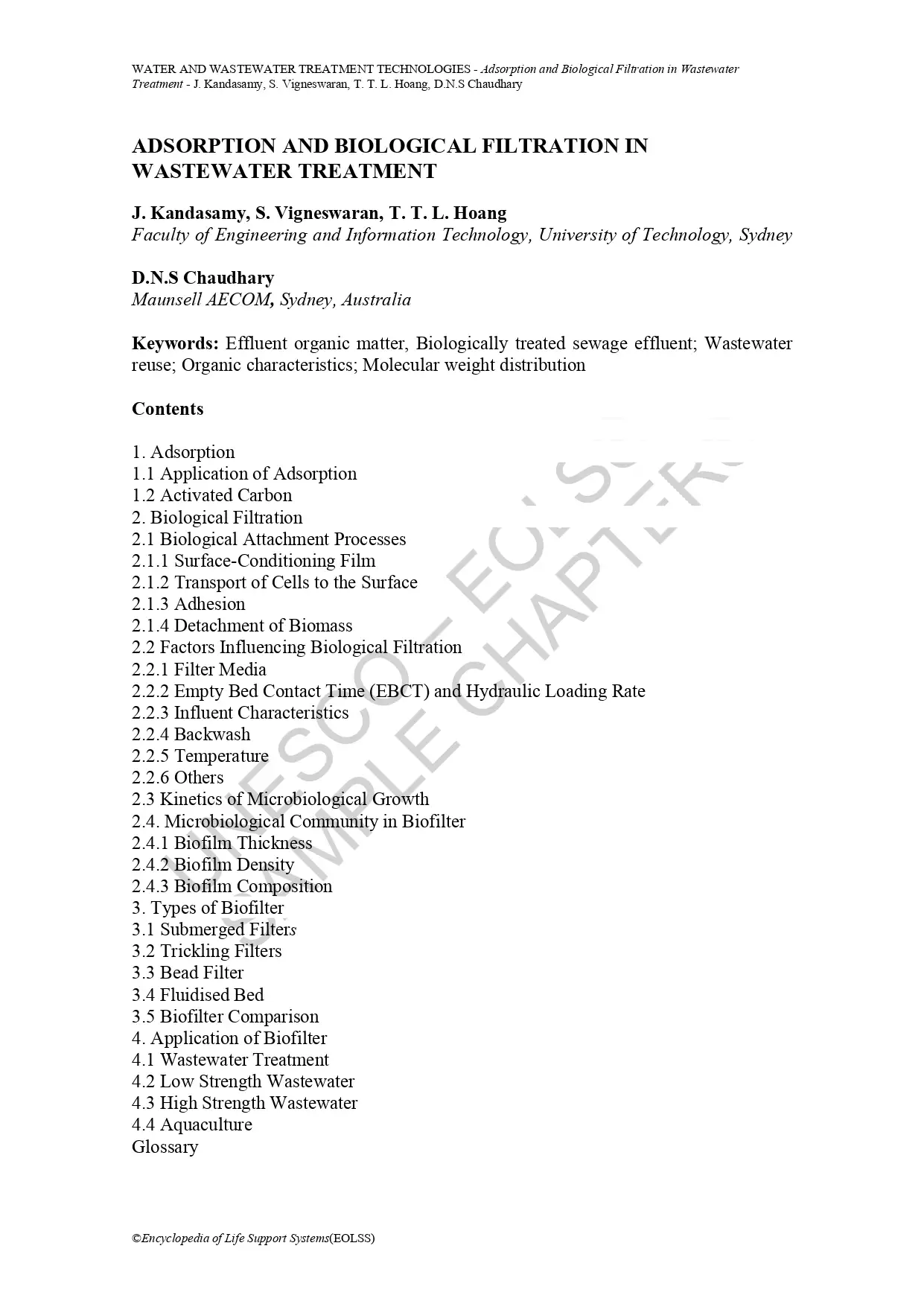
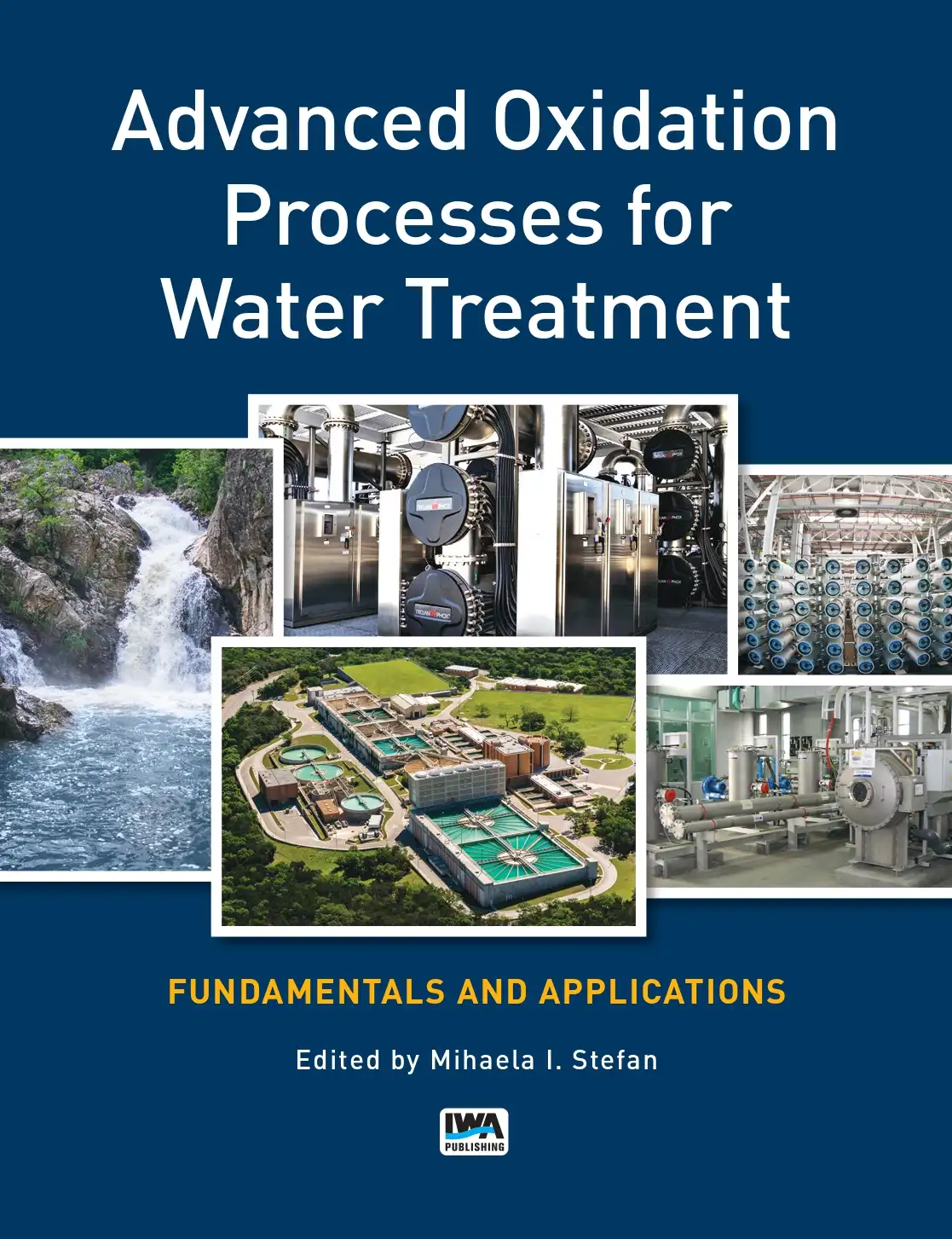

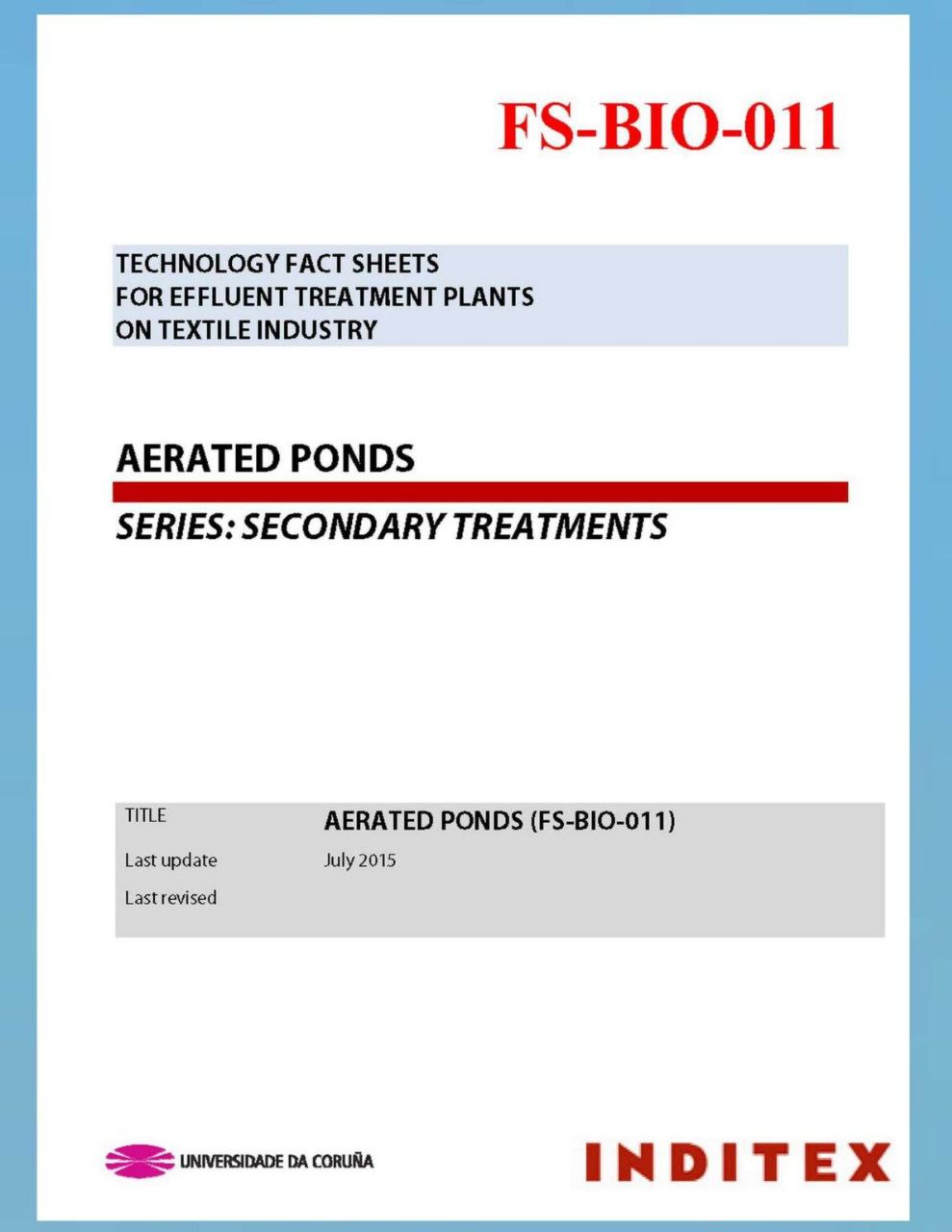
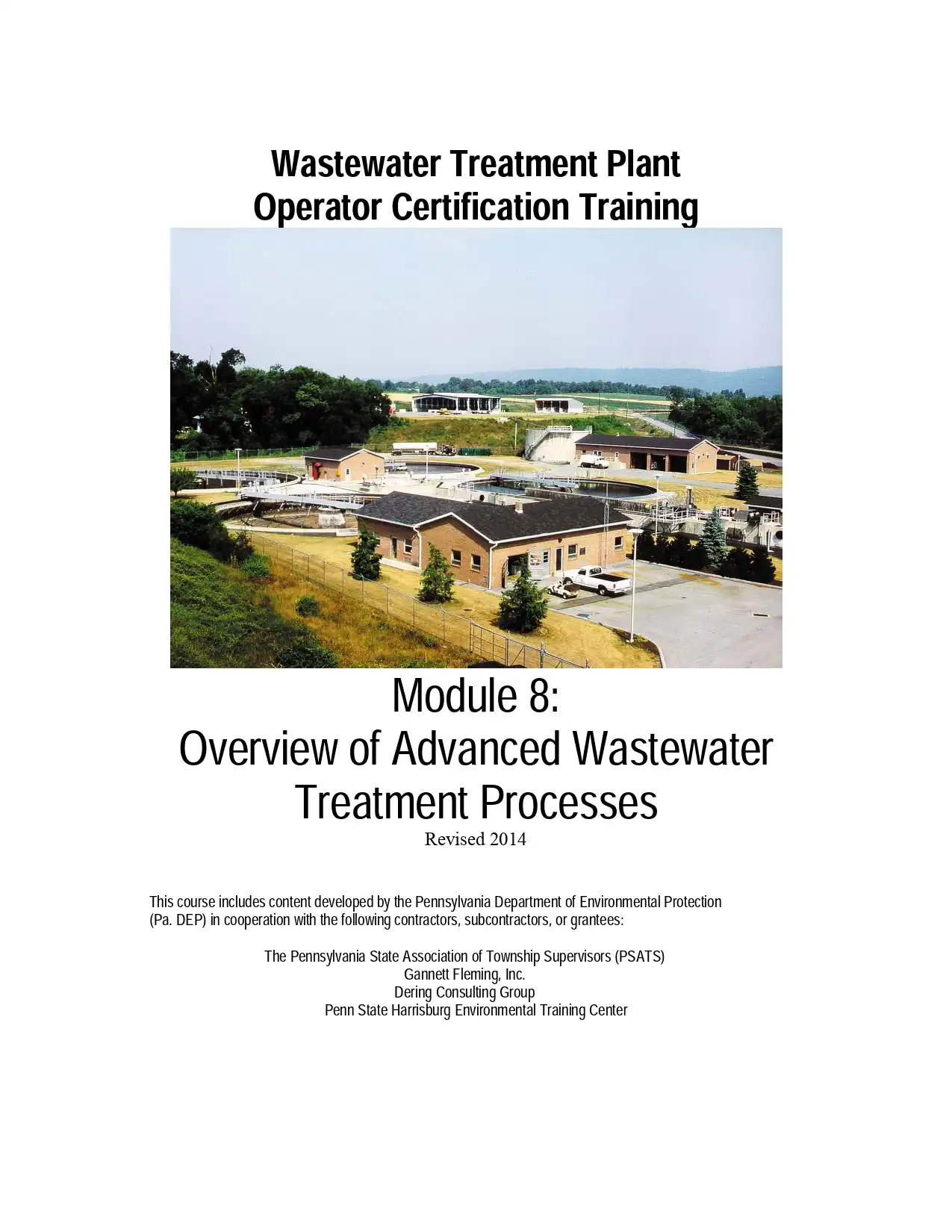
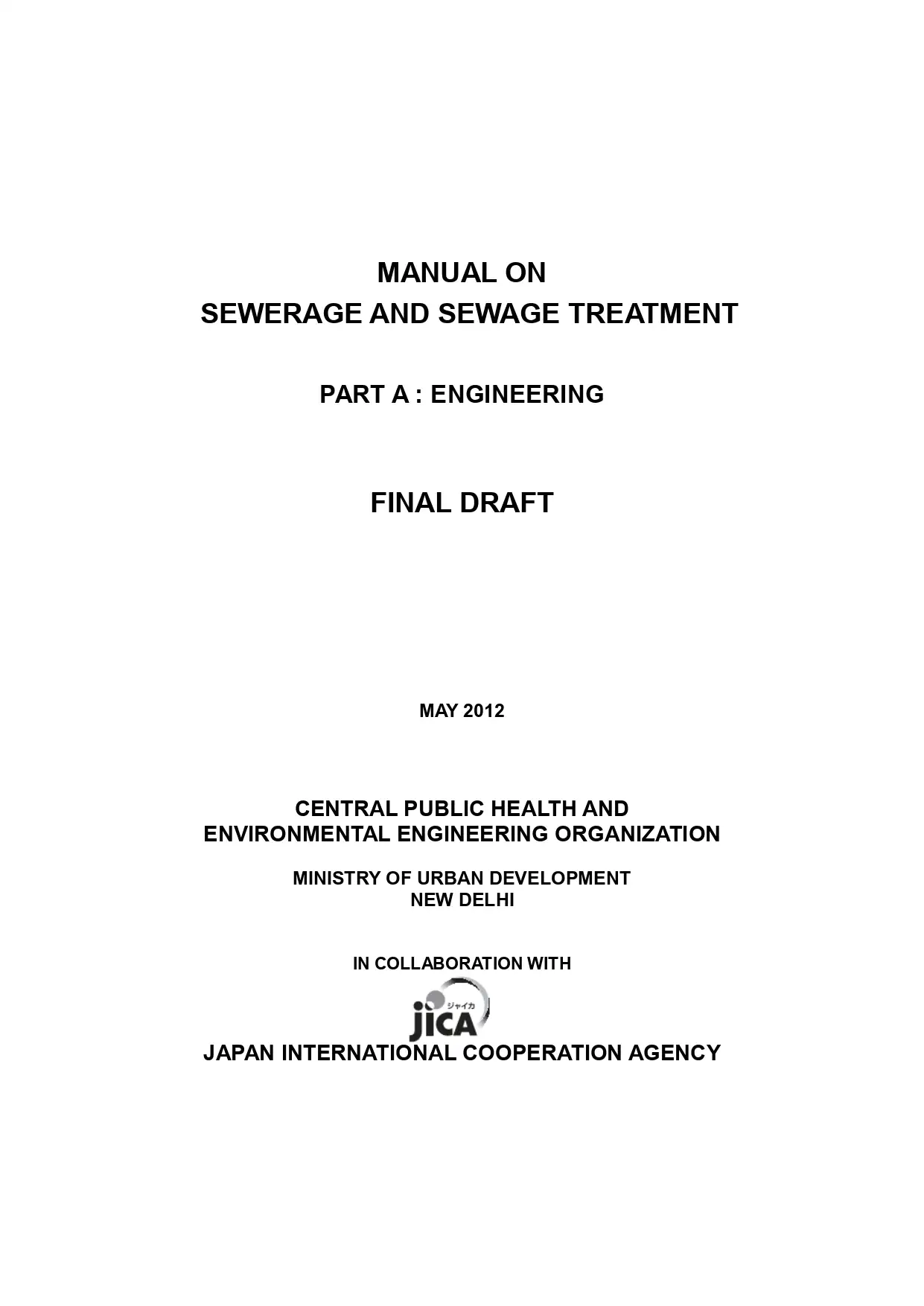
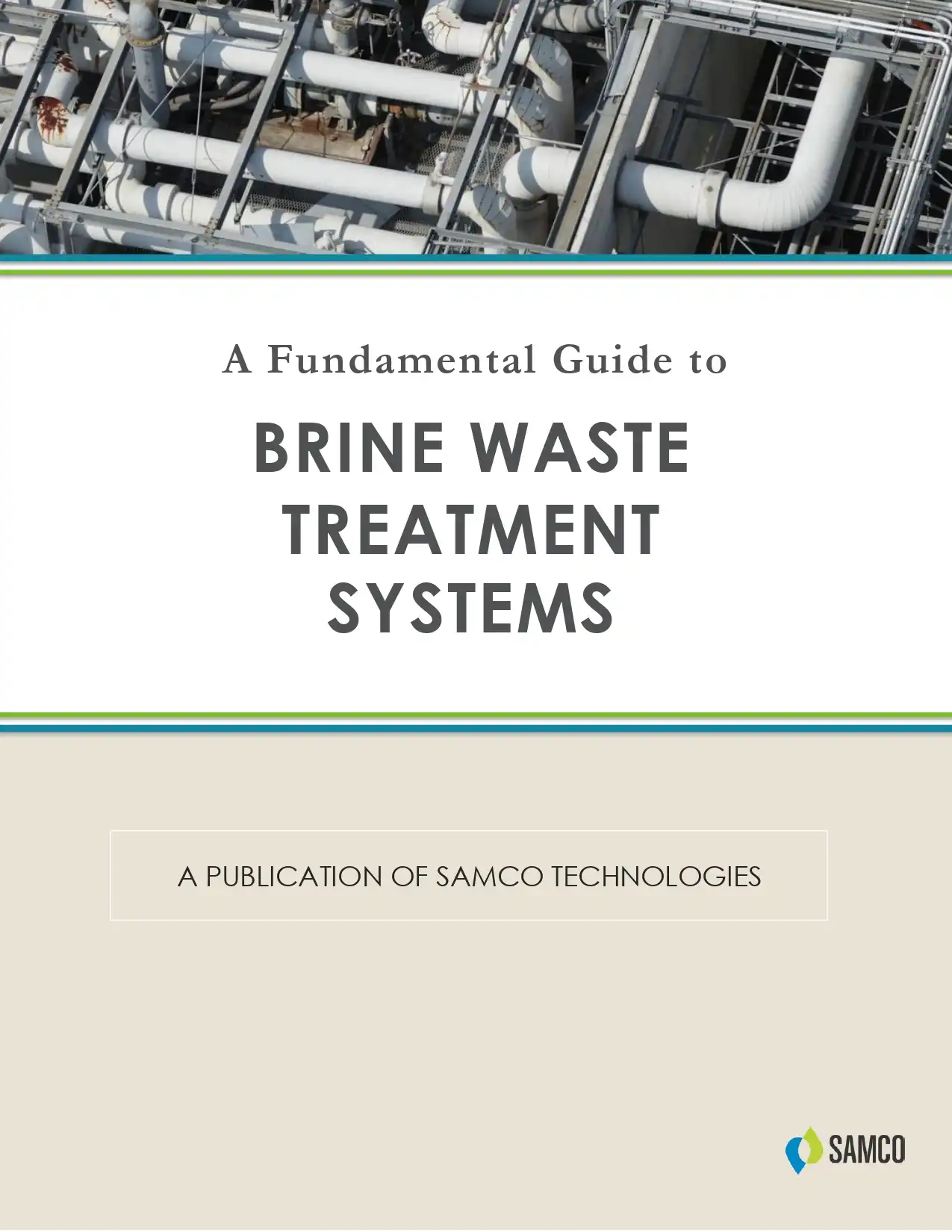
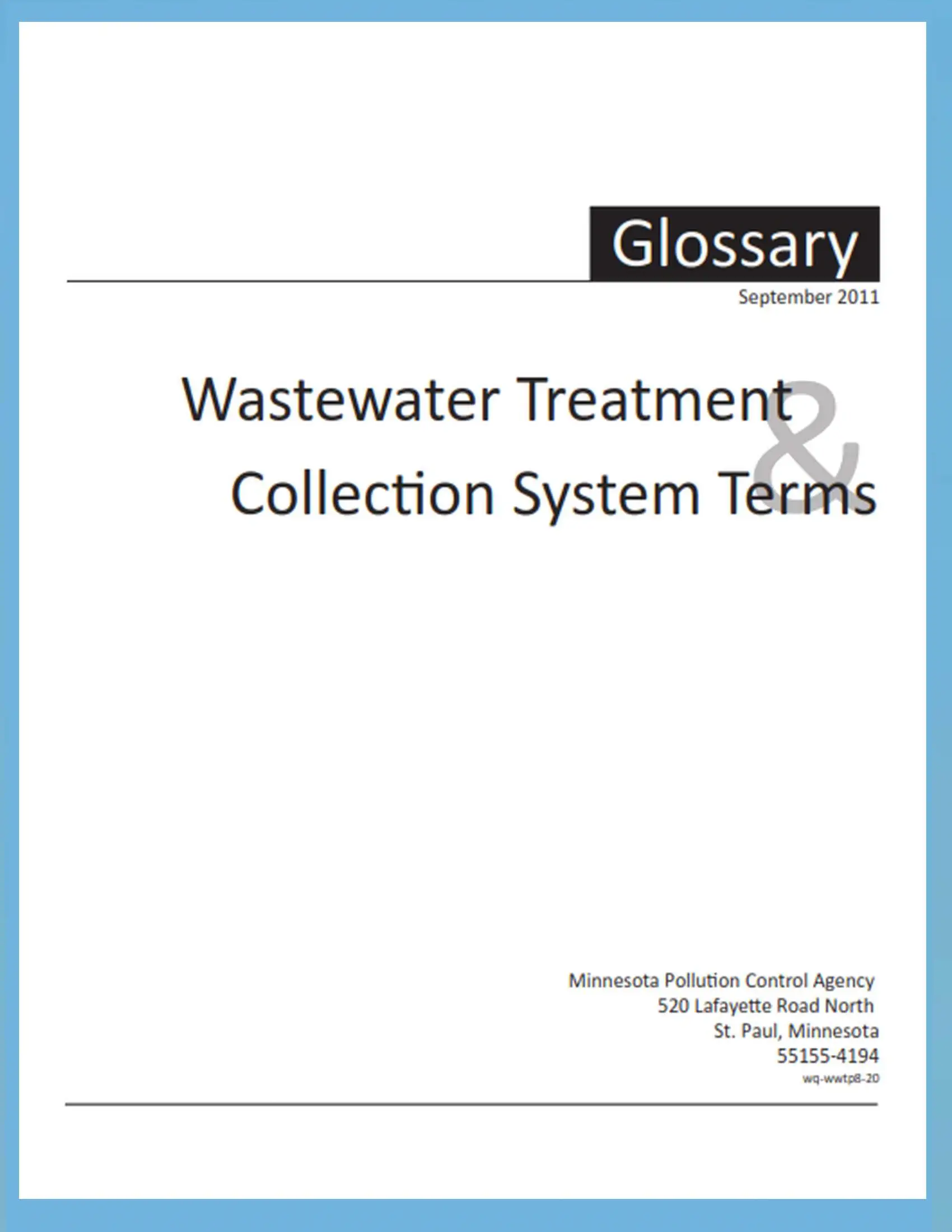
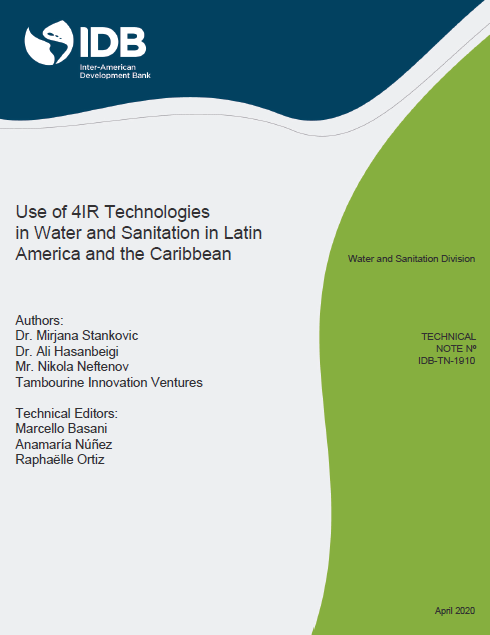
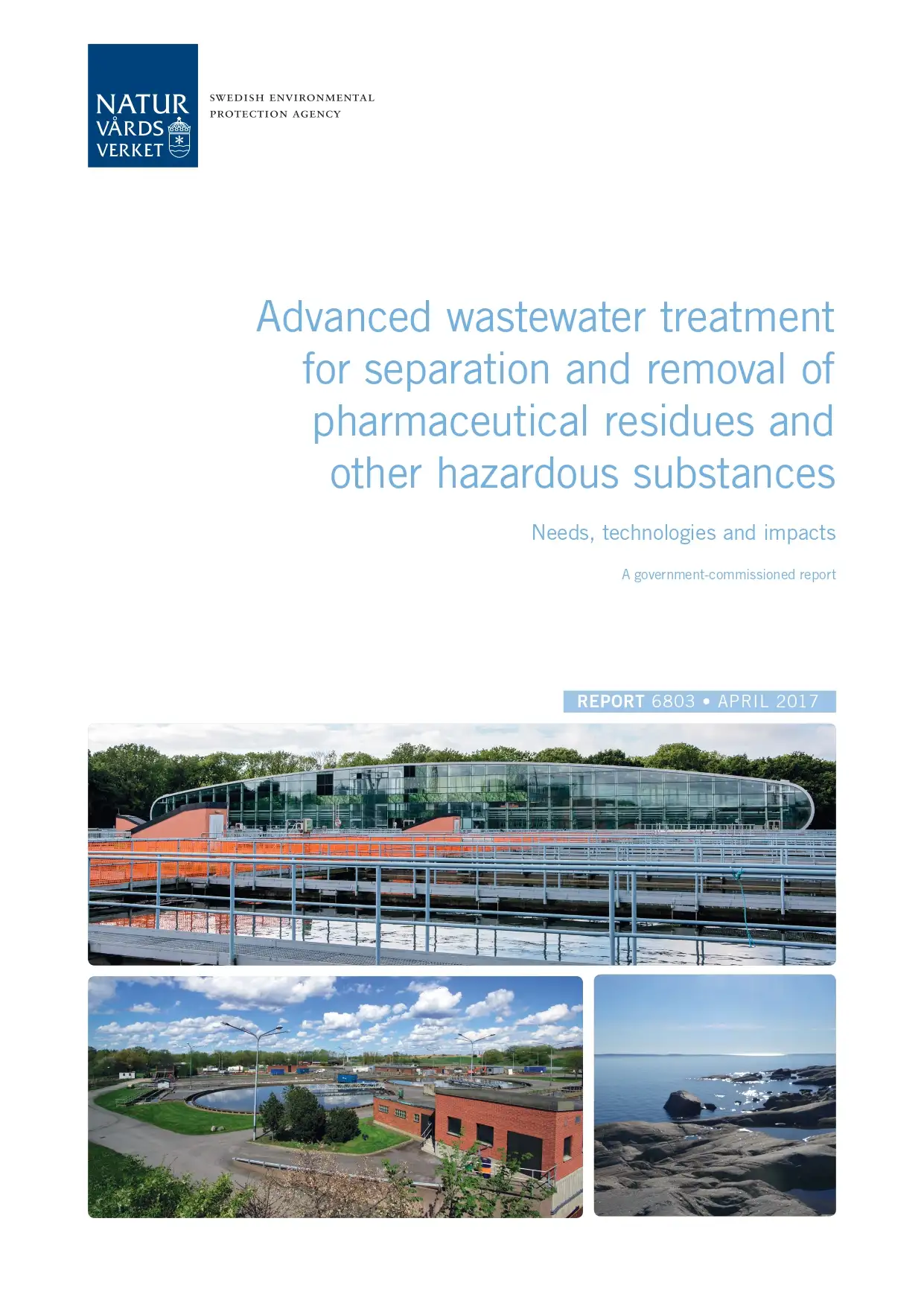
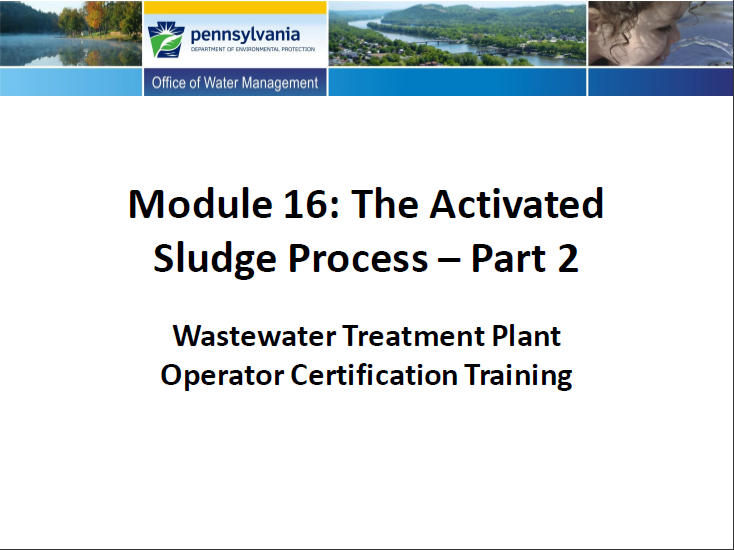
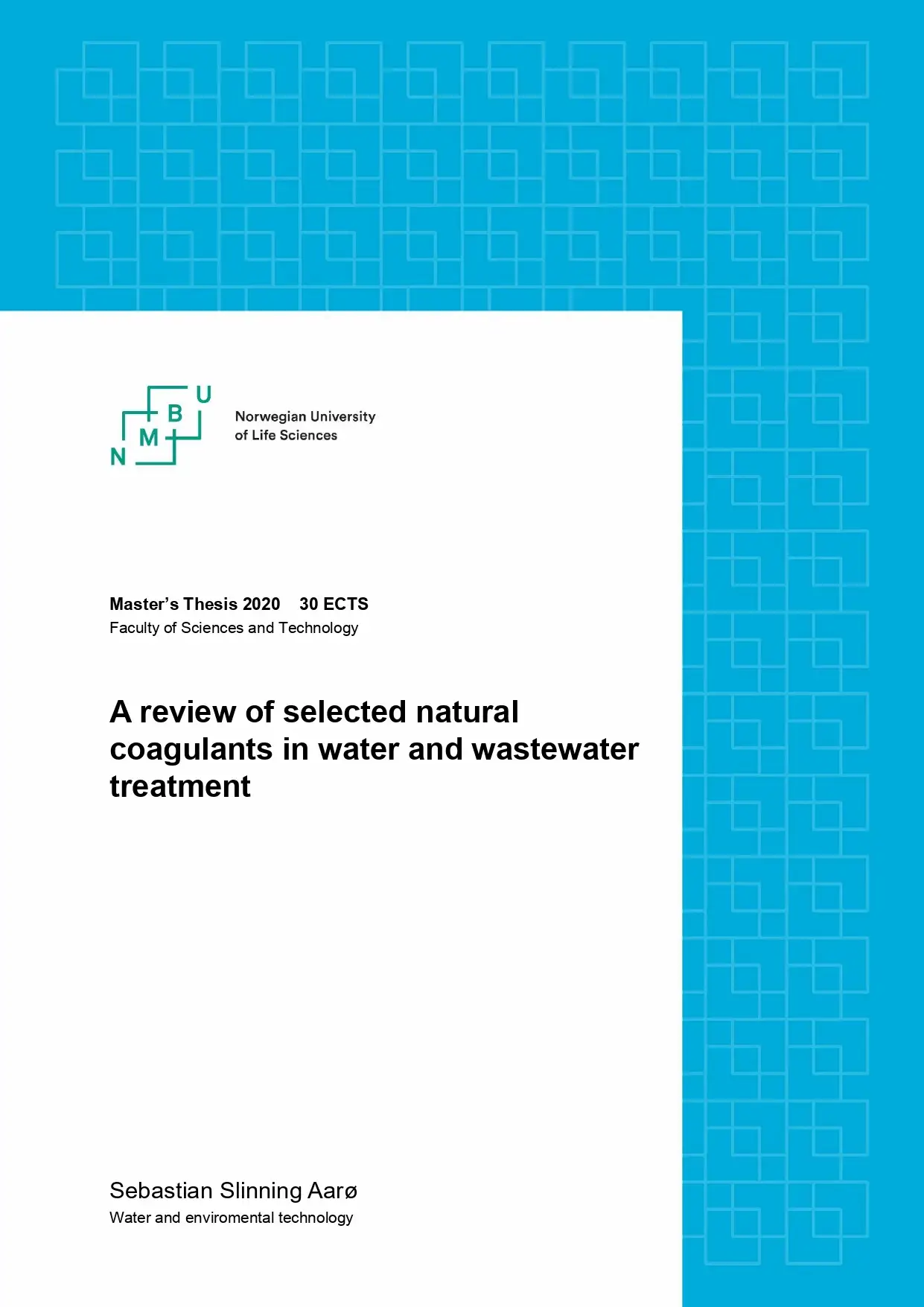
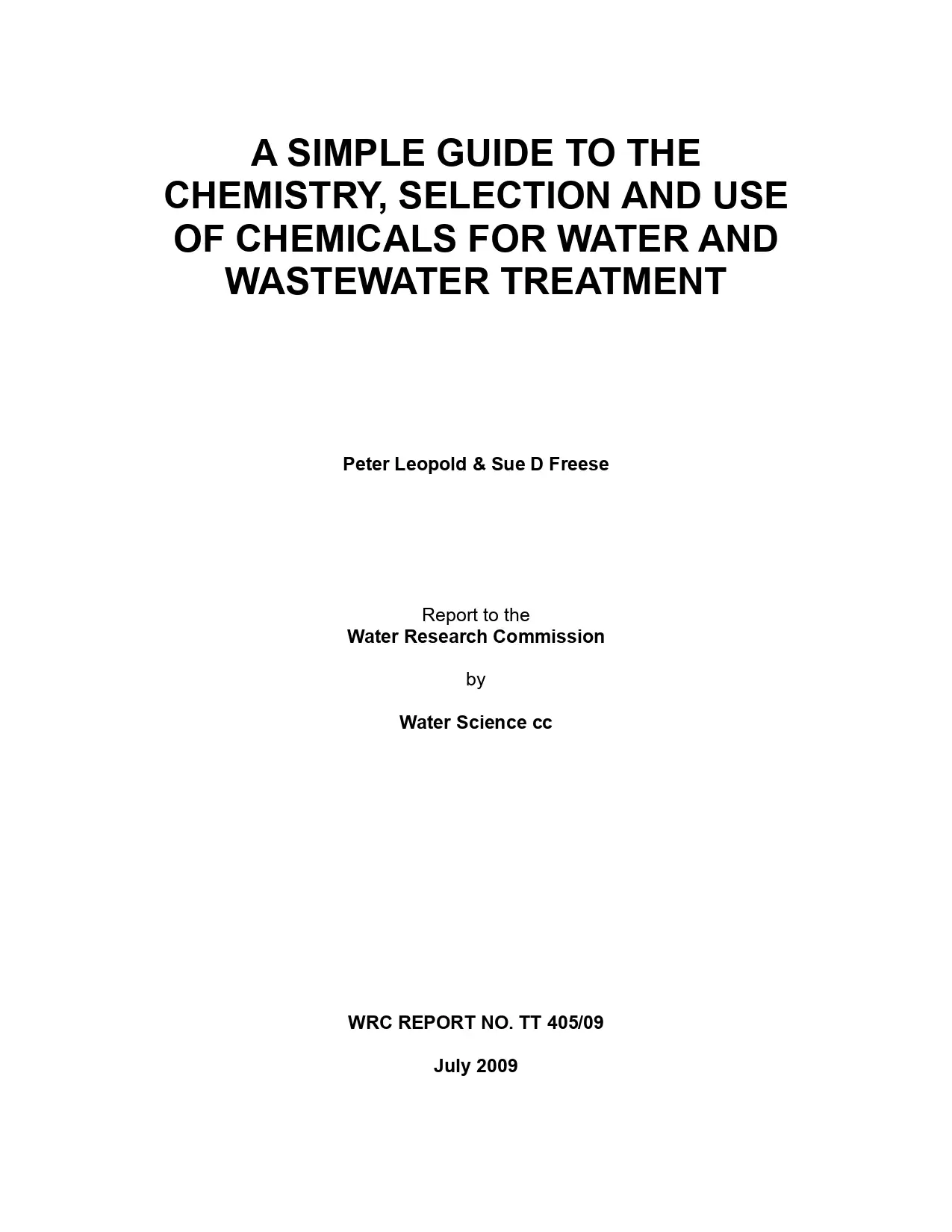
Reviews
There are no reviews yet.